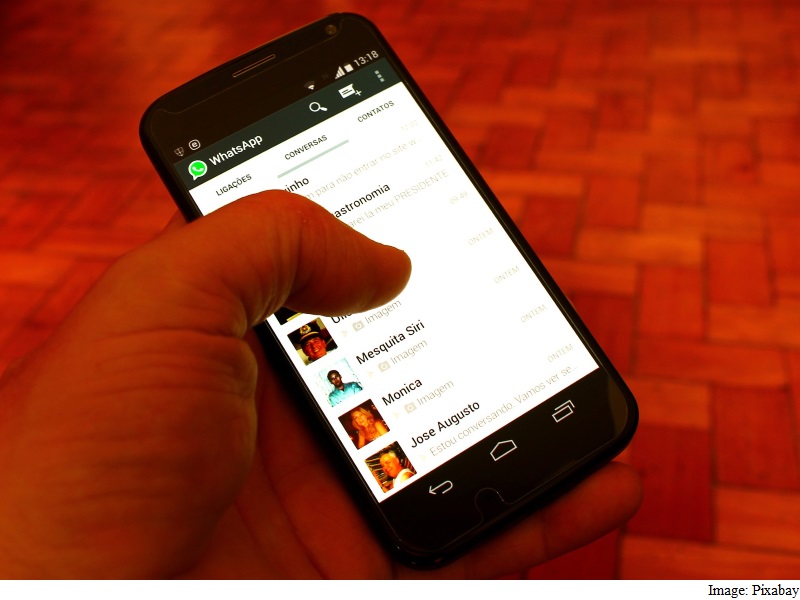- Home
- Apps
- Apps Features
- WhatsApp Outruns Brazil's Unprepared Legal System
WhatsApp Outruns Brazil's Unprepared Legal System

For a moment this week, Brazilians actually looked up from their mobile phones. On Wednesday evening, a criminal court in Sao Paulo ordered a 48-hour shutdown of Facebook's popular messaging service WhatsApp, leaving 100 million users bereft, the competition delighted, and lawyers in a lather.
True, the hubbub was short-lived: By Thursday afternoon, an appeals court judge reversed the suspension. "It's unreasonable to punish millions of users because of the lapse of one company," Judge Xavier de Souza argued, citing the lower court's "unconstitutional" decision to take down the network after company executives allegedly failed to comply with a court order to turn over data as part of a criminal investigation.
Brazilians are no strangers to hyperactive judges. In a country known for its frail safety nets and extremes of wealth and poverty, "social problems often end up in the courtroom," said Wagner Cinelli, an appeals court justice in Rio de Janeiro.
Beware the magistrate with a grudge or a mission: A local judge in Brazil can wield remarkable clout over private businesses - the sort US government officials in their tussles with Silicon Valley over metadata have always dreamed of - and an ill-conceived ruling can have nationwide repercussions.
Add digital technology and the speed of the Internet to the mix, and the potential for turmoil is boundless. Earlier this year, a judge in northeast Brazil similarly ordered telephone operators to suspend WhatsApp for 24 hours when the company refused to hand over client data in another criminal investigation.
In 2007, a judge temporarily shut down YouTube when the website failed to take down a paparazzo video of a Brazilian fashion model having sex with her boyfriend on a beach in Spain. Though YouTube eventually complied with the court order, bootleg copies of the offending video had already spread on the Web, making a hash of the court order. The case was only settled this October, with a $128,000 (roughly Rs. 85,00,000) fine against Google, which now controls YouTube.
The official reasons for the latest WhatsApp ban have not been made public; the criminal case is sealed and neither the judge nor the police are talking, though Brazilian media reported that federal prosecutors went to court after the company ignored official requests to share the content of messages swapped by known drug traffickers.
Facebook CEO Mark Zuckerberg seemed to lend credence to that version. "I am stunned that our efforts to protect people's data would result in such an extreme decision by a single judge to punish every person in Brazil who uses WhatsApp," he posted on his Facebook page.
He'll get no argument from the tech-hungry Brazilians: A recent survey showed 93 percent of the 2,000 people researched use WhatsApp. So intense is Brazil's messaging traffic that this week's temporary blackout was said to have disrupted service as far away as Chile and Venezuela.
For consumer markets like Brazil that are eager for a stake in the digital frontier, the larger quandary may be one of jurisdiction. Although WhatsApp boasts millions of local customers, the company has no corporate presence in Brazil. "Companies often claim they are bound by the rules of their country of origin, including privacy laws," said Marilia Maciel, who coordinates the Center for Technology and Society at the Getulio Vargas Foundation's School of Law. Maciel said that leaves settling legal conflicts to the vagaries of bilateral cooperation treaties, where negotiations can be slow and cumbersome.
Brazilian tech scholars warn that while the court's zeal in chasing crime over the Internet is laudable, disproportionate remedies can create havoc. "These cases show that many judges are not prepared for our time of innovative technology," said Eduardo Magrani, also a law professor at the foundation, who specializes in Internet law. "Our judges need to understand the times we live in."
They might take a cue from the markets. No sooner had the lower court pulled the plug on WhatsApp, competitor messaging service Telegram reported 1.5 million downloads in less than 24 hours.
© 2015 Bloomberg L.P.
Catch the latest from the Consumer Electronics Show on Gadgets 360, at our CES 2026 hub.
Related Stories
- Samsung Galaxy Unpacked 2025
- ChatGPT
- Redmi Note 14 Pro+
- iPhone 16
- Apple Vision Pro
- Oneplus 12
- OnePlus Nord CE 3 Lite 5G
- iPhone 13
- Xiaomi 14 Pro
- Oppo Find N3
- Tecno Spark Go (2023)
- Realme V30
- Best Phones Under 25000
- Samsung Galaxy S24 Series
- Cryptocurrency
- iQoo 12
- Samsung Galaxy S24 Ultra
- Giottus
- Samsung Galaxy Z Flip 5
- Apple 'Scary Fast'
- Housefull 5
- GoPro Hero 12 Black Review
- Invincible Season 2
- JioGlass
- HD Ready TV
- Laptop Under 50000
- Smartwatch Under 10000
- Latest Mobile Phones
- Compare Phones
- Tecno Spark Go 3
- iQOO Z11 Turbo
- OPPO A6c
- Samsung Galaxy A07 5G
- Vivo Y500i
- OnePlus Turbo 6V
- OnePlus Turbo 6
- Itel Zeno 20 Max
- Lenovo Yoga Slim 7x (2025)
- Lenovo Yoga Slim 7a
- Lenovo Idea Tab Plus
- Realme Pad 3
- Garmin Quatix 8 Pro
- NoiseFit Pro 6R
- Haier H5E Series
- Acerpure Nitro Z Series 100-inch QLED TV
- Asus ROG Ally
- Nintendo Switch Lite
- Haier 1.6 Ton 5 Star Inverter Split AC (HSU19G-MZAID5BN-INV)
- Haier 1.6 Ton 5 Star Inverter Split AC (HSU19G-MZAIM5BN-INV)

















